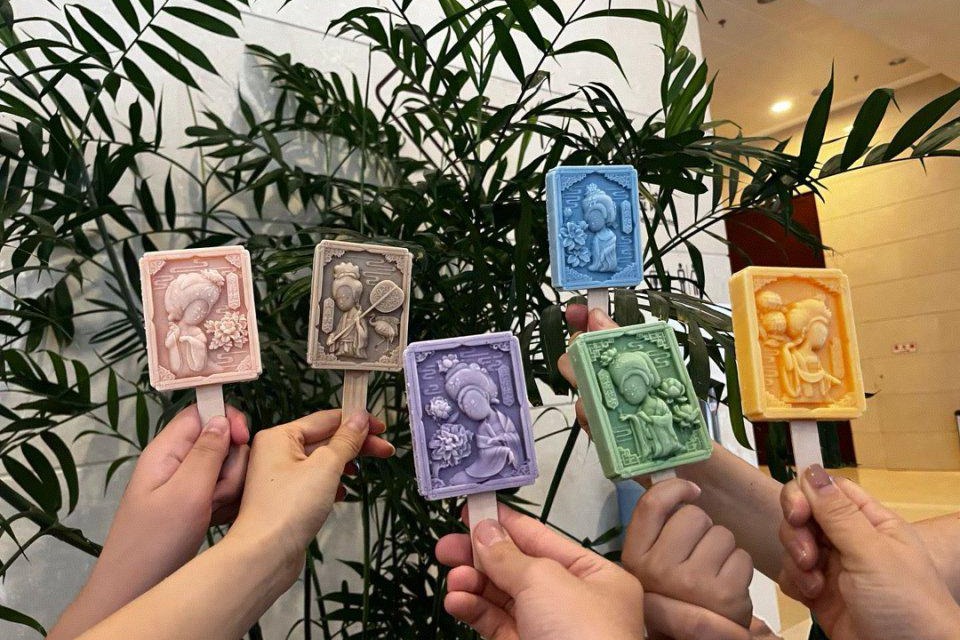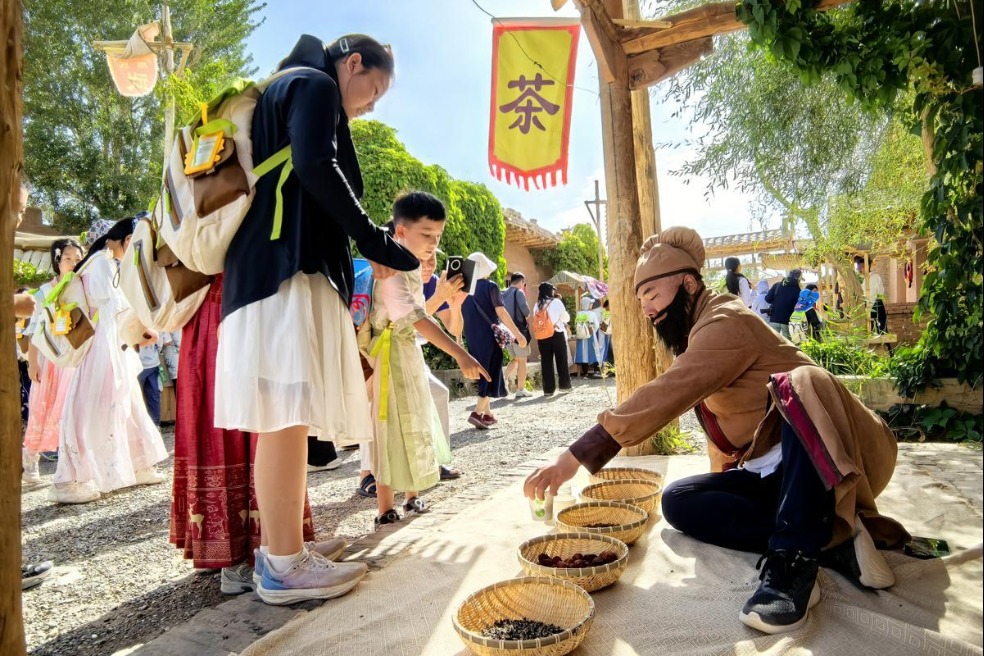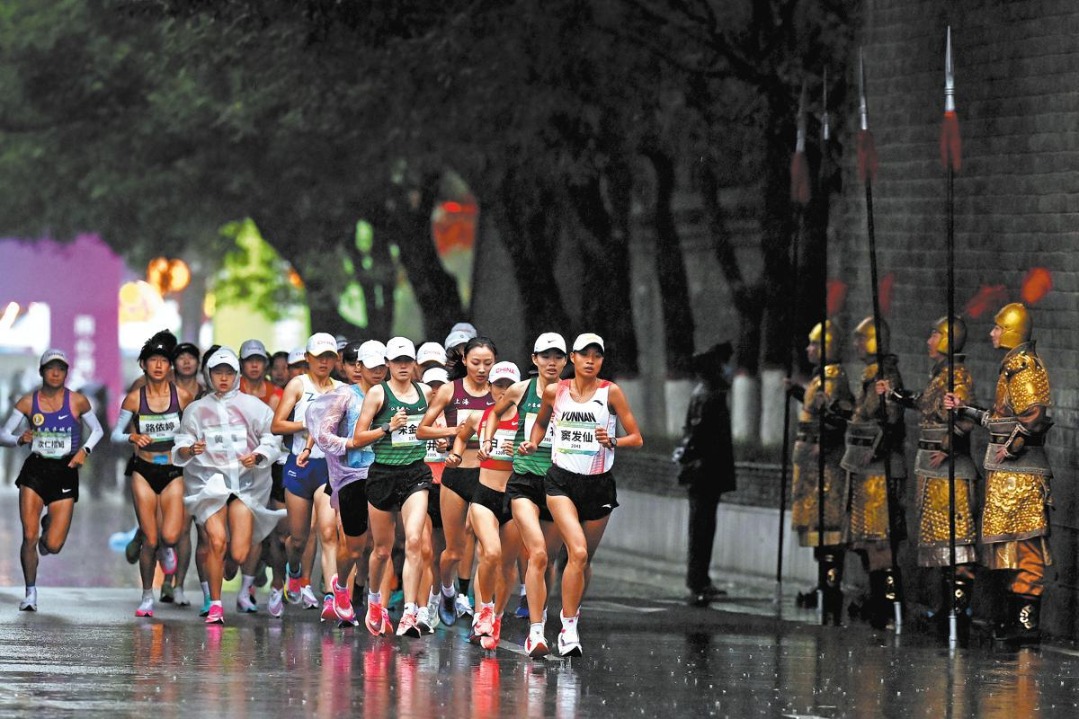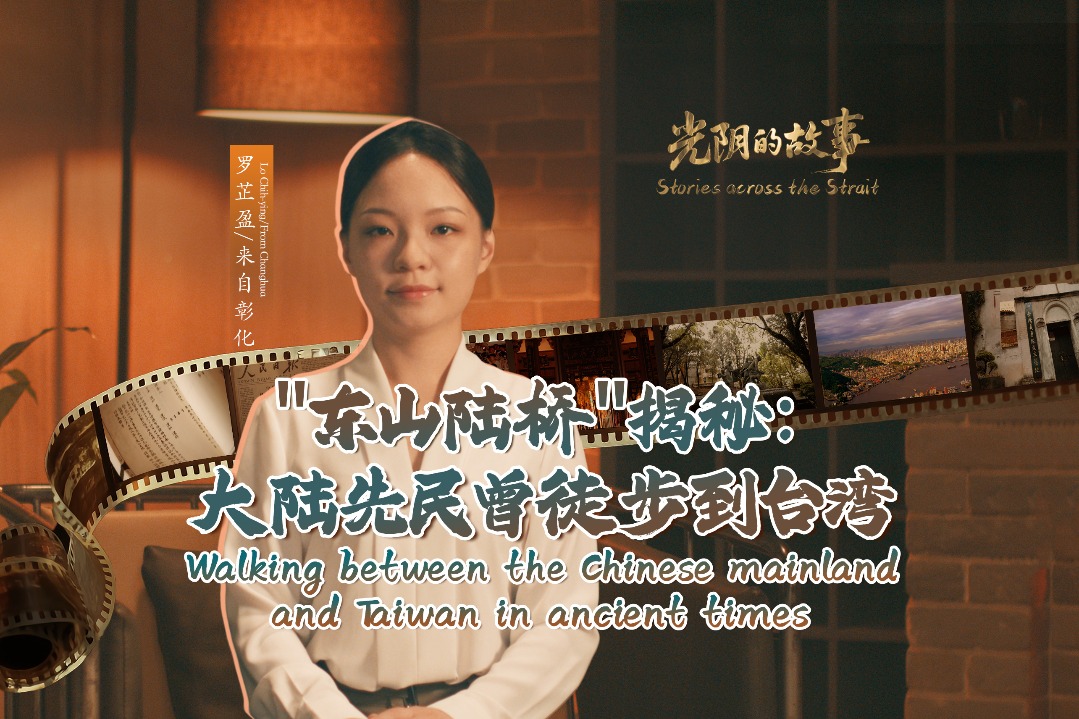Coastal village embodies shared history

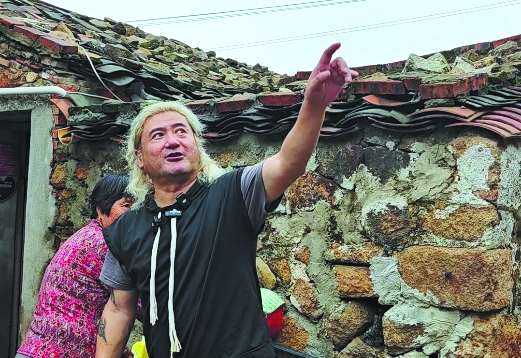
In the coastal village of Gushi in Fujian province, a cluster of stone houses stands as a living monument to history. The village, in Lianjiang county, has been transformed into a leisure hub where young people from both sides of the Taiwan Strait gather — thanks to the efforts of Blues Chen, a 58-year-old artist from Taiwan.
Originally from Taipei, Chen is a director, singer and designer. In 2018, he ventured alone to the Chinese mainland, where he has since participated in rural vitalization projects across more than 10 villages in Fujian.
Gushi marks his third stop. Located just 8 kilometers from the Taiwan-administered island of Matsu, the village is the closest point on the mainland to the island. The sea route between the two takes about half an hour.
For Chen, the village carries personal significance. Thirty years ago, while living on Matsu, he often gazed across the Strait at Gushi. "I never imagined that three decades later, I'd be standing in Gushi, looking back at Matsu," he said.
"Gushi exudes a historical charm reminiscent of fishing village culture in Matsu. The people are exceptionally friendly, making me feel right at home," he added.
Gushi is home to 90 stone houses similar to those in Matsu, enduring structures built to withstand wind and sand — a testament to the survival wisdom of the island's ancestors. Chen advocates for preserving and repurposing these century-old buildings, turning them into homestays and cultural retreats.
Officially opened to the public in January last year, the village has become a model for cross-Strait rural integration.
Inside the guesthouses, hemp ropes, fishing nets and vinyl records adorn the walls, reflecting a blend of island culture and artistic flair. Communal halls feature pianos and guitars, and shared kitchens are stocked with utensils, rice cookers and seasonings.
"Visitors can enjoy coffee, brew tea, unwind with a book, or purchase seafood from the port to cook their meals — slowing their pace in the village," Chen said.
He believes food and tea culture offer the best entry points for cross-Strait integration. His tea shop sells both mainland and Taiwan high-mountain teas. A nearby herb garden grows Taiwan lilies and other herbs used in local herbal teas, enhancing the rural landscape.
Taiwan specialties such as pineapple cakes, fruit juices and satay sauce are available in a 24-hour unmanned store. A small museum exhibits old letters, photos, audiovisual materials and other artifacts from cross-Strait exchanges. The village also hosts grassroots events for residents from both sides.
Chen said his dream is to build a utopia where young people from across the Strait can gather, exchange ideas and foster cultural and artistic collaboration.
Recently, he brought his mother — who was born on the mainland and moved to Taiwan with her parents when she was 6 — to visit the mainland, hoping to comfort her nostalgia.
Fang Biling contributed to this story.
Contact the writers at zhangyi1@chinadaily.com.cn


















